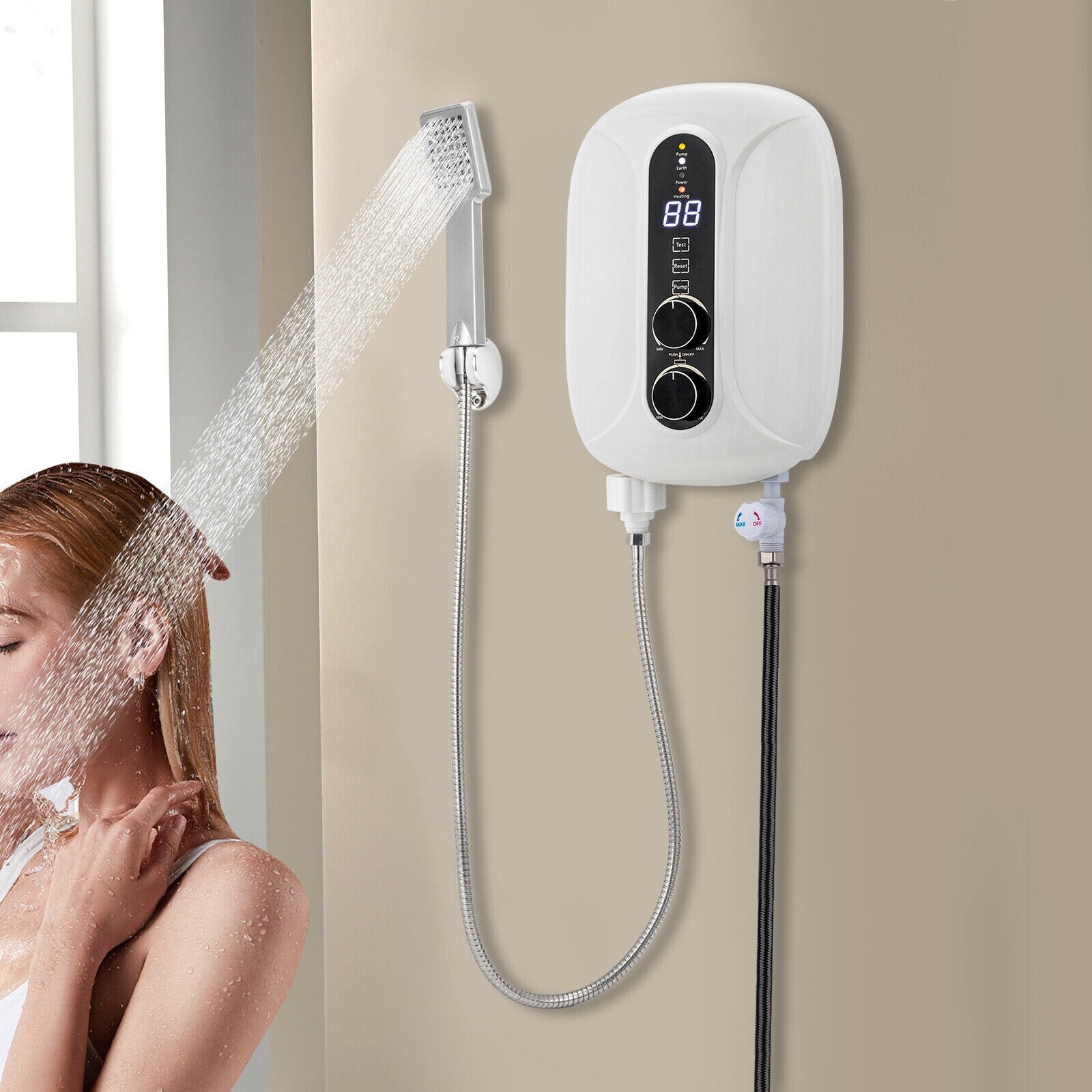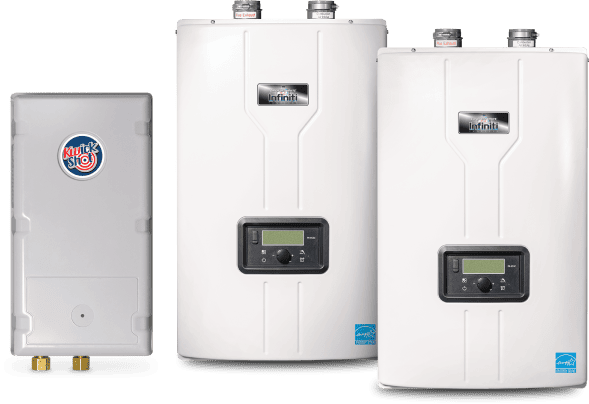Starting With Energy Savings To Space Efficiency: The Benefits Of Tankless Water Heaters
Starting With Energy Savings To Space Efficiency: The Benefits Of Tankless Water Heaters
Blog Article
The article author is making a number of great points on the subject of Pros and Cons of Tankless Water Heater overall in this content down below.

In a globe where comfort and effectiveness preponderate, it's not a surprise that homeowners are continuously on the lookout for smarter methods to handle their home's energy usage and comfort. One advancement that has continuously acquired popularity is the tankless water heater. However exactly what makes these systems stick out from the conventional tank-based designs most of us matured with? Allow's dive in and check out the benefits of tankless hot water heater, helping you determine if it's time to make the switch in your home.
Introduction
Image this: you enter the shower after a lengthy day, anticipating a comforting cascade of hot water, just to be greeted by icy droplets due to the fact that the last person used it all up. Sound acquainted? Standard water heaters store a fixed quantity of warm water, implying you're at the mercy of that storage tank's supply. Tankless systems, on the other hand, warmth water on demand. No more running out mid-shower, no more fumbling with routines simply to make certain hot water is readily available.
Comprehending Tankless Hot Water Heater
What Are Tankless Water Heaters?
Tankless water heaters, in some cases known as on-demand or immediate water heaters, offer warm water only as it's needed. Rather than saving gallons of pre-heated water, these units kick into action the minute you switch on the tap. Water travels through a heat exchanger, heating up in real-time, indicating you obtain a continuous flow of warm water without the demand for a huge tank sitting idly by.
Just how Do They Vary from Conventional Equipments?
Standard heating units hold a reservoir of hot water, making use of energy to maintain that tank at a regular temperature level. Tankless systems remove the standing supply, cutting down on squandered power and the large footprint of a big cylinder. Essentially, you're updating from a "stockpile" state of mind to a "made-to-order" method.
Common Types of Tankless Units
Tankless hot water heater generally are available in 2 ranges: gas and electric. Gas models often tend to deliver greater flow prices, ideal for bigger houses, while electric models frequently offer smaller homes and are typically much easier to set up. Additionally, some systems are designed for point-of-use (offering one component) while others can manage the entire home's hot water demands.
Trick Advantages of Tankless Water Heaters
1. Limitless Warm Water Supply
Ever needed to set up showers so everybody gets their reasonable share of warm water? With tankless, that becomes a distant memory. As long as the heater's circulation capability isn't surpassed, you can take back-to-back showers without turning into a popsicle.
2. Power Efficiency and Expense Savings
Say goodbye to warming a titan container's worth of water and keeping it cozy all day. Tankless heaters decrease standby power losses, which can reduce energy costs. While the initial cost may be higher, the lasting financial savings typically warrant the financial investment.
3. Space-Saving Design
If your home is short on storage space, getting rid of the cumbersome container liberates useful area. Tankless units are compact and can typically be mounted on wall surfaces, hidden in corners, or installed in limited utility storage rooms without grabbing all of the entire space.
4. Longer Life-span
A well-kept tankless hot water heater can outlast its tank-based cousin. Typical tanks may last 10-15 years, while tankless versions can keep downing along for two decades or more, making them a solid investment gradually.
5. Improved Water Top Quality
Keeping water in a storage tank can occasionally bring about debris build-up or a somewhat "off" taste. With tankless systems, fresh water is heated up instantly, decreasing the possibilities of sediment accumulation and possibly using cleaner-tasting water.
Considerations Prior To Changing
Though the advantages are engaging, it's smart to take into consideration a couple of aspects prior to completely dedicating.
Initial Investment Prices
Tankless heating systems normally include a greater upfront cost. Between the unit itself and possible setup modifications, the initial price might offer you sticker shock. Yet bear in mind to see it as a lasting investment.
Installment Requirements
Depending upon your home's facilities, you may require additional electrical ability or gas line upgrades. Ensure you recognize the installation requirements and seek advice from a specialist to avoid surprises.
Assessing Your Home's Water Usage Patterns
If your household concurrently utilizes numerous fixtures with high hot water demand, make certain the unit's circulation price meets your requirements. Understanding your use patterns assists you choose the best size and type of tankless heating system.
Upkeep and Care Tips
Tankless systems are reasonably reduced maintenance, but they aren't set-it-and-forget-it devices.
Routine Cleansing and Descaling
Hard water minerals can accumulate in the warm exchanger, impacting performance. Routine descaling (commonly recommended annually) maintains the device performing at peak performance.
Annual Expert Assessments
A yearly checkup from an expert guarantees small concerns are captured early. They'll analyze the system's performance, try to find leakages, and help preserve optimal performance.
Ensuring Proper Ventilation
For gas designs, correct air flow is essential to safely remove exhaust gases. Make certain airing vent systems are tidy and correctly installed to prevent any potential safety hazards.
Comparing Different Brands and Versions
Not all tankless hot water heater are produced equivalent.
Investigating Trusted Suppliers
Seek trustworthy brand names with a background of generating quality units. A reputable supplier often provides far better customer support and longer service warranties.
Reading Reviews and Individual Feedback
Customer evaluations and feedback from next-door neighbors or friends that have actually gone tankless can offer valuable understandings. Sometimes, real-life experiences can be a lot more telling than advertising and marketing sales brochures.
Installation: DIY or Specialist?
While some homeowners enjoy dealing with tasks themselves, tankless installment could not be the most effective time to burst out the tool kit.
Benefits and drawbacks of Do It Yourself Setup
A DIY install could conserve money, but it features threats. Inaccurate installation can lead to inefficiency or safety problems. If you come in handy and have experience, it may be possible-- but wage care.
When to Call a Professional Plumbing Professional
For many, calling a professional ensures everything's done properly. A specialist plumbing professional understands local codes, sizing demands, and airing vent criteria, lowering the risk of mishaps.
Taking full advantage of Effectiveness
You have actually invested in a tankless system-- currently maximize its effectiveness.
Optimum Temperature Settings
Most individuals set their units between 120-140 F. Changing the temperature can enhance convenience and financial savings. Experiment to locate a pleasant area that doesn't squander power.
Coupling With Low-Flow Fixtures
Intend to extend your device's capacities? Think about setting up low-flow showerheads and taps. They minimize water usage, permitting your tankless system to provide a steady stream of warm water without stressing.
Environmental Influence
Tankless water heaters line up with greener living objectives.
Decreased Carbon Footprint
By utilizing much less energy and just home heating water as needed, tankless systems can lower your home's carbon impact, reducing your environmental effect.
Preserving Natural Resources
Less energy usage and much less lost hot water translate into fewer natural deposits being used, an environmental win-win.
Who Benefits A Lot Of from Tankless Heating systems?
The beauty of tankless heating units is that they can fit a selection of households.
Large Families vs. Single Passengers
Big households may like the limitless warm water supply, while solitary passengers appreciate the energy savings from not heating a whole storage tank for just one person's early morning shower.
Homeowners with Limited Room
If your home is short on square video footage, losing the cumbersome storage tank liberates space for other basics-- or possibly simply much more breathing space.
Eco-Conscious Consumers
Going tankless aligns with environmentally friendly values, ensuring you're not wasting energy or resources.
Future Fads in Tankless Water Heaters
The globe of home appliances is ever-evolving, and tankless water heaters are no exception.
Smart Home Assimilation
Envision adjusting your hot water heater's temperature through an application or obtaining upkeep signals on your phone. As smart home tech breakthroughs, we'll see even more connectivity and ease.
Developments in Technology
R&D is regularly improving heat exchangers, making systems extra efficient and long lasting. Future versions might be even quieter, a lot more portable, and much better suited for differing environments.
Final thought
Selecting a tankless water heater is greater than simply upgrading your home's warm water system; it's investing in long-lasting comfort, power effectiveness, and a greener way of living. By considering your household's water use, bearing in mind installment requirements, and dedicating to regular maintenance, you can delight in a stable stream of hot water without the luggage of a large tank. As technology advances, you can expect even smarter, more reliable tankless services that not just make your life much easier but additionally benefit the planet.
Pros and Cons of Tankless Water Heaters
Tankless Water Heater Pros
Saves Energy: Simply put, you re spending less energy to create hot water, so your total carbon footprint goes down, not to mention your bills. Lasts Longer Than Storage Tanks: Storage tank units need to be replaced every 15 years or so. But tankless units? They can last for 30 years before they give out on you. Constant Hot Water: Need to take a shower and don t want the water running cold? Awesome it won t. The water will stay hot the entire time because it creates hot water on demand. Saves You Money: Less water usage equals less money. Beyond that, you re not paying to keep water hot 24/7. Those savings add up quickly. Better for the Environment: Less water waste is better for everyone. It saves you money, but it s also environmentally conscious at the same time. Tankless Water Heater Cons
It Can Take a Minute: Depending on your specific unit and its placement, it can take anywhere from 10 seconds to 2 minutes to fully heat up. Because there s no storage tank, it heats water as you need it. Upfront Purchase Price: While we talked about their longevity, there s sticker shock when you look at brand-new tankless units to install. It pays for itself, but it s still a big chunk of change at first. Has its Limits: If you run multiple appliances at once, such as the dishwasher, washing machine, and maybe you take a shower at the same time, there might not be enough hot water. https://www.airsouthnow.com/blog/water-heater-service/pros-and-cons-of-tankless-water-heaters/

Hopefully you liked our section on Unveiling the Hot Trend: The Benefits of Tankless Water. Thank you so much for spending some time to read through our article. Sharing is good. Helping others is fun. Kudos for being here. Kindly come visit our website back soon.
Start Now Report this page